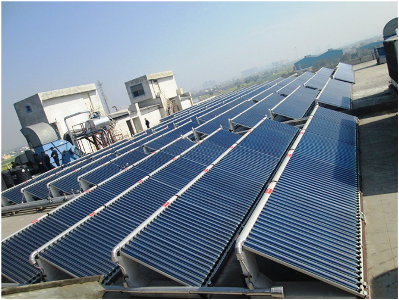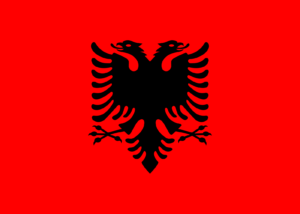India: New Energy Building Regulations to Boost Solar Heating Market
July 24, 2017
 This June, the Indian Ministry of Power published an updated version of the Energy Conservation Building Code (ECBC) developed by the Indian Bureau of Energy Efficiency (BEE). The ECBC has established energy efficiency standards and a solar share of hot water demand for newbuilds and refurbished homes and commercial buildings across India. But it will be the task of municipal corporations to issue notifications which mandate compliance with ECBC 2017 regulations in the construction sector in their area. The ECBC was launched in 2007 based on the Energy Conservation Act from 2001. The photo shows a vacuum tube installation for solar process heat at automotive manufacturer JBM Group. Solar industry stakeholders have said that it was regrettable that industrial buildings and applications are not covered by the ECBC 2017.
This June, the Indian Ministry of Power published an updated version of the Energy Conservation Building Code (ECBC) developed by the Indian Bureau of Energy Efficiency (BEE). The ECBC has established energy efficiency standards and a solar share of hot water demand for newbuilds and refurbished homes and commercial buildings across India. But it will be the task of municipal corporations to issue notifications which mandate compliance with ECBC 2017 regulations in the construction sector in their area. The ECBC was launched in 2007 based on the Energy Conservation Act from 2001. The photo shows a vacuum tube installation for solar process heat at automotive manufacturer JBM Group. Solar industry stakeholders have said that it was regrettable that industrial buildings and applications are not covered by the ECBC 2017.Photo: Jaideep Malaviya
“The building sector in India consumes over 30 % of the total electricity used in the country annually,” P K Pujari, former Secretary of the Ministry of Power, was quoted as saying in the introductory chapter of the 200-page document. “Energy demand is expected to grow aggressively in the coming years, considering a rising population and technology-intensive lifestyles.” The ECBC has received a technical update in 2017 to cover advancements in energy-efficient building technologies and building management practices and to streamline compliance processes.
The section relevant to solar thermal is 5.2.9 Service Water Heating (p. 78), from which the following paragraphs originate:
“To meet hot water requirements and to comply with the mandate, hotels and hospitals in all climatic zones and all buildings in cold climate zones with a hot water system shall have solar water heating equipment installed to provide for
- at least 20 % of the total hot water design capacity if above-grade floor area of the building is less than 20,000 m2
- at least 40 % of the total hot water design capacity if above-grade floor area of the building is greater than or equal to 20,000 m2
“For compliance with ECBC Plus and Super ECBC, hotels and hospitals in all climatic zones and all buildings in cold climate zones with a hot water system shall have solar water heating equipment installed to provide at least 40 % and 60 %, respectively, of the total hot water design capacity.
“However, if the buildings use heat recovery to provide the hot water capacity required as per efficiency level or building size, then the mandatory use of solar collectors will not apply. The solar collectors shall meet the performance/minimum efficiency level mentioned in IS 13129 Part (1&2).”
The ECBC merely provides a national framework, but is not mandatory as such. Municipal corporations will have to issue notifications for the mandatory use of solar collectors based on the ECBC 2017 in their territory. BEE has said that in these notifications the municipal corporation can stipulate solar water heater systems to be installed even in renovated buildings, if technically feasible, e.g., a shade-free roof. In municipalities with mandatory regulations, construction companies would only receive a building completion certificate if their construction complied with ECBC regulations.
The Ministry of Power expects the adoption of the ECBC 2017 for new commercial building construction throughout the country to lead to a 50 % reduction in energy use in building by 2030. This would translate into around 300 billion kWh saved by 2030 and peak demand reduced by over 15 GW per year.
“There must be a clear definition of buildings in cold climate zones and it needs to include those industries which require hot water for their production processes as well,” said Devinder Kaushal of solar thermal system supplier Inter Solar Systems. “Whereas the code certainly covers hotels, hospitals and hostels, it would be a huge boost to solar thermal manufacturing if the same were true for industrial buildings.”
To receive a link for downloading the study, go to:


